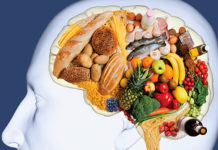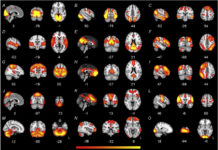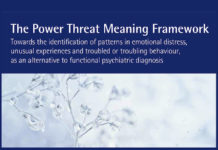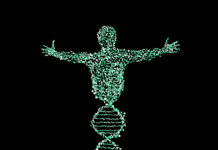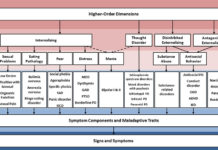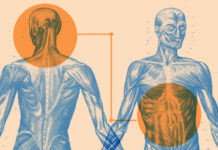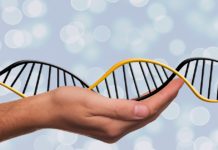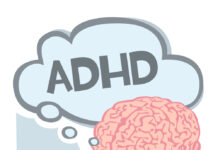Growing Research Connects Nutrition and Mental Health
A new article reviews studies in the field of nutritional psychiatry and how nutrition can prevent and treat mental health issues.
Schizophrenia Genetic Research – Running on Empty
The time has come to halt the massive failure that has characterized schizophrenia molecular genetic research, and to thoroughly reassess what critics have always said are the severely flawed family, twin, and adoption studies that inspired and helped justify this research.
Brain Disease or Existential Crisis?
As the schizophrenia/psychosis recovery research continues to emerge, we discover increasing evidence that psychosis is not caused by a disease of the brain, but...
No Brain Connectivity Differences Between Autism, ADHD, and “Typical Development”
Neuroscience researchers find no differences in brain connectivity between children with diagnoses of autism, ADHD, and those with no diagnoses.
Withdrawal Symptoms Routinely Confound Findings of Psychiatric Drug Studies
Researchers examine how rapid discontinuation can mimic the relapse of mental health symptoms and confound psychiatric drug studies.
Suicide in a Culture of Mandated Happiness – Who’s to Blame?
We live in a culture of mandated positivity and compulsory happiness, which somehow remains untouched by the current political, social, ecological and economic realities of the world. If you’re distressed, it must either be your bad attitude (which is a choice) or your broken brain (which is not a choice); god forbid we look anywhere outside the self.
Mental Health Professionals and Patients Often Disagree on Causes of Symptoms
A new study finds that clinicians’ disregard for mental health patients’ insight into their own condition may be detrimental to treatment.
Violence Caused by Antidepressants: An Update after Munich
The media is now reporting details about the 18-year-old who shot and killed nine and wounded many others before killing himself on July 22 in Munich. My clinical and forensic experience leads to a distinction among people who murder under the influence of psychiatric drugs. Those who kill only one or two people, or close family members, often have little or no history of mental disturbance and violent tendencies. The drug itself seems like the sole cause of the violent outburst. On the other hand, most of those who commit mass violence while taking psychiatric drugs often have a long history of mental disturbance and sometimes violence. For these people, the mental health system seems to have provoked increasing violence without recognizing the danger.
When Minds Crack, The Light Might Get In: A Spiritual Perspective on Madness
You can’t go back to mundane ways of seeing the world after very dark things happen. Trauma cracks open a hole in our lives and in our minds, throwing us into the zone where we face the big spiritual questions. Bad ideas can get in when things open up like that. But it’s also possible that something new and positive can get in.
The Power Threat Meaning Framework One Year On
The team that developed the Power Threat Meaning framework as a diagnostic alternative reflects on the response to the framework after one year.
Belongingness Can Protect Against Impact of Trauma, Study Suggests
A new study explores feelings of belongingness as a protective factor for childhood trauma and adult mental health outcomes.
Researchers Question Link Between Genetics and Depression
A new study, published in the journal Molecular Psychiatry, found no link between genetics and the occurrence of depressive symptoms.
Dehumanization Linked to Poorer Mental and Physical Health
A new review finds that dehumanizing language, including self-dehumanization, is connected to anxiety, depression, and disordered eating.
Combining Art Therapy and Mindfulness for Refugees
A new article, published in The Arts in Psychotherapy, describes the ways art therapy and mindfulness have benefitted refugees and asylum seekers in Hong Kong.
Philosophers Challenge Psychiatry and its Search for Mechanisms of Disorder
Attempting to locate the mechanisms of psychiatric disorder is a step in the wrong direction and fails to challenge potentially unjust social practices.
The Science and Pseudoscience of Women’s Mental Health: Conversation with Kelly Brogan
A conversation with Dr. Kelly Brogan, a leading voice in natural approaches to women’s mental health. With degrees from MIT and Weil Cornell Medical College, triple board certification in psychiatry, psychosomatic medicine and integrative holistic medicine, Dr. Brogan is uniquely qualified to challenge the pseudoscience of the chemical imbalance theory and the drug regimens that it spawned.
International Research Team Proposes a New Taxonomy of Mental Disorders
New data interpreted to suggest a hierarchical, dimensional system of mental disorders will aid future research efforts and improve mental health care.
New Evidence for Brain-Gut Link in Depression and Quality of Life
The first ever population-level study of the brain-gut connection in humans finds evidence for a link between gut bacteria and mental health.
Epilepsy Drugs Can Induce Psychosis in Some Patients, Study Finds
In this month’s issue of the journal Brain a new study investigates whether the drugs prescribed to control seizures can increase the risk of...
German Psychologists Declare “the Drugs Don’t Work”
Jürgen Margraf and Silvia Schneider, both well-known psychologists at the University of Bochum in Germany, claim that psychotropic drugs are no solution to mental...
“Silent” Forms of Child Abuse Strongly Tied to Depression
Psychological abuse and childhood neglect are strongly associated with depression in adulthood, according to a meta-analysis of childhood trauma and depression published in this month’s issue of the Journal of Affective Disorders. “The findings clearly highlight the potential impact of the more ‘silent’ types of childhood maltreatment (other than physical and sexual abuse) on the development of depression,” the researchers conclude.
It is Time to Abandon the Candidate-Gene Approach to Depression
The candidate-gene approach to depression goes unsupported and is likely based on bad science, new research finds.
Five Decades of Gene Finding Failures in Psychiatry
Two generations of molecular genetic researchers have attempted, yet failed, to discover the genes that they believe underlie the major psychiatric disorders. The most recent failure is a molecular genetic study that was unable to find genes for symptoms of depression. Like most genetic researchers in psychiatry, the authors failed to consider the possibility that no such genes exist.
Treating Metabolic Conditions May Resolve Some Depressive Symptoms
New research suggests that treatable metabolic abnormalities underlie some treatment-resistant cases of depression—and treating the metabolic condition has the possibility of dramatically reducing depressive symptoms
Lancet Psychiatry’s Controversial ADHD Study: Errors, Criticism, and Responses
Amid calls for a retraction, Lancet Psychiatry publishes articles criticizing the original finding and a response from the authors.

